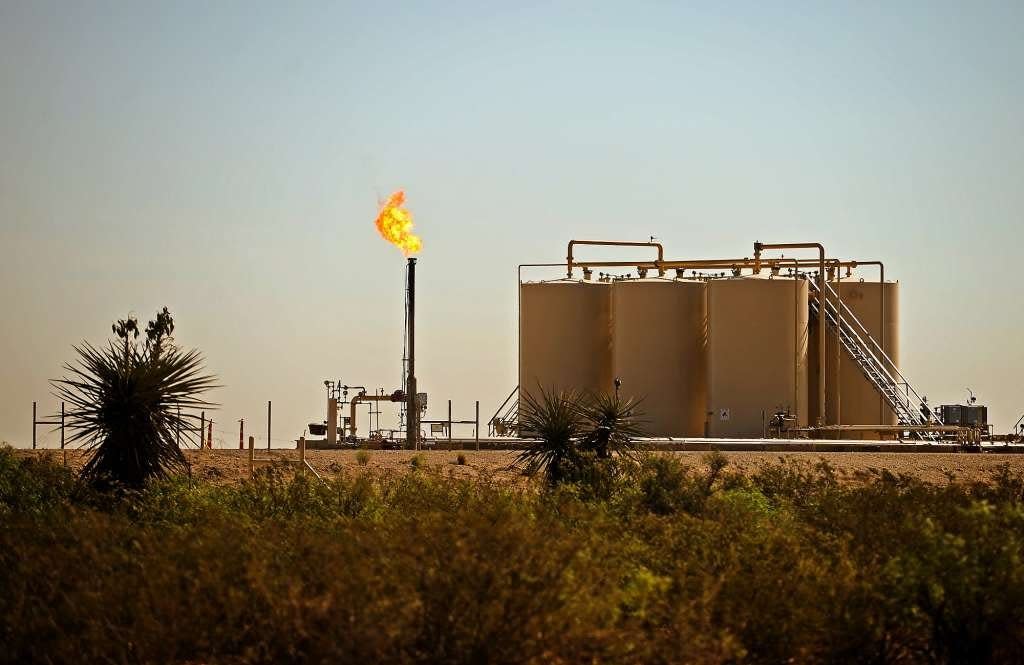Citing ESG policies, Texas Permanent School Fund pulls $8.5B investment from BlackRock
The Texas Permanent School Fund, an endowment fund established in 1845 to help boost public education, pulled its $8.5 billion investment from the asset-management giant BlackRock on Tuesday, saying its internal governance policies are harmful to the state's energy industry.
Aaron Kinsey, chairman of the State Board of Education, issued a formal statement saying the New York company that bills itself as "one of the world's preeminent asset management firms" is among the leaders in the movement known as "environmental, social and governance," or ESG, and therefore under state law is ineligible for investments by Texas governmental entities.

"BlackRock's dominant and persistent leadership in the ESG movement immeasurably damages our state's oil and gas economy and the very companies that generate revenues for our PSF," Kinsey wrote. "Texas and the PSF have worked hard to grow this fund to build Texas' schools. BlackRock's destructive approach toward the energy companies that this state and our world depend on is incompatible with our fiduciary duties to Texans."
In a statement, BlackRock said the decision to withdraw the school fund's investment will do more harm than good to Texas, its institutions and its taxpayers.
More: A Texas law geared to help energy, firearms industries comes at multimillion-dollar cost
“Today’s unilateral and arbitrary decision by Board of Education Chair Aaron Kinsey jeopardizes Texas schools and the families who have benefited from BlackRock’s consistent long-term outperformance for the Texas Permanent School Fund,” the unsigned statement said. “The decision ignores our $120 billion investment in Texas public energy companies and defies expert advice. As a fiduciary, politics should never outweigh performance, especially for taxpayers.”
Texas and BlackRock have had something of a turbulent relationship since the Legislature in 2021 enacted a law that prevents governmental entities from doing business with financial institutions that have environmental, social and governance policies against fossil fuels and firearms industries.
The year before the law took effect, BlackRock announced it would put environmental "sustainability at the center of our investment process."
"Because we believe that climate risk is investment risk, BlackRock’s active portfolio managers seek to understand how they can use environmental, social, and governance (ESG) data as a lens to identify new risks and opportunities, and to build more resilient and better performing portfolios," the company said in a message on its website.
In 2022, Lt. Gov. Dan Patrick, who presides over the Texas Senate and was one of the drivers of the 2021 act called the Fair Access Law, specifically asked state Comptroller Glenn Hegar to include BlackRock on the list of companies that Texas should no longer do business with.
"BlackRock is capriciously discriminating against the oil and gas industry by exiting investments solely because companies do not subscribe to a 'net zero' (carbon emissions) policy beyond what is required by law," Patrick told Hegar in writing.
However, earlier this year, Patrick and BlackRock CEO Larry Fink appeared to be on a path to mend fences. Both participated in the Feb. 6 "energy summit" in Houston after BlackRock said it would participate in the effort to raise $10 billion in investments to add generation largely from natural gas sources to the Texas electric grid.
“My stance on Environmental, Social, Governance (ESG) and Diversity, Equity, and Inclusion (DEI) policies have not and will not change," Patrick said in a statement at the time. "They should not be part of any funding agreement in Texas. I appreciate BlackRock, especially Larry Fink, for bringing a variety of investors to this conference."
In a statement of his own, Fink appeared to sidestep the ESG controversy, saying that BlackRock is "happy to partner with Texas officials to discuss the potential for new investment" in electric generation.
"Bringing together the capital, the opportunity, and the decision-makers can help lead to a renewed development boom in the power sector in Texas," Fink said. "However, the challenge of creating greater grid resilience at an affordable price isn’t unique to Texas — it’s a challenge across America."
Last week, a study by Austin-based firm TXP on behalf of the Texas Association of Business Chambers of Commerce Foundation found that the financial actions taken by the state under the Fair Access Law are costing Texas taxpayers hundreds of millions of dollars because several financial lending agencies are no longer competing to underwrite bonds for public improvement projects.
The Permanent School Fund, established the same year Texas became part of the United States, was given its start with a $2 million endowment from the Legislature.
On its website, the fund notes that the Texas Constitution "stipulated that certain (state-owned) lands and all proceeds from the sale or lease of these lands would comprise the PSF." Since the mid-20th century, revenues from oil taken from state-owned seabeds extending 10 miles off the Gulf Coast also go to the fund.
The Constitution empowers the State Board of Education "to both invest these proceeds and to make annual distributions to public schools."
According to Stock Analysis, BlackRock has an "enterprise value" of $160.16 billion.
This article originally appeared on Austin American-Statesman: Texas Permanent School Fund withdraws $8.5 billion BlackRock investment
